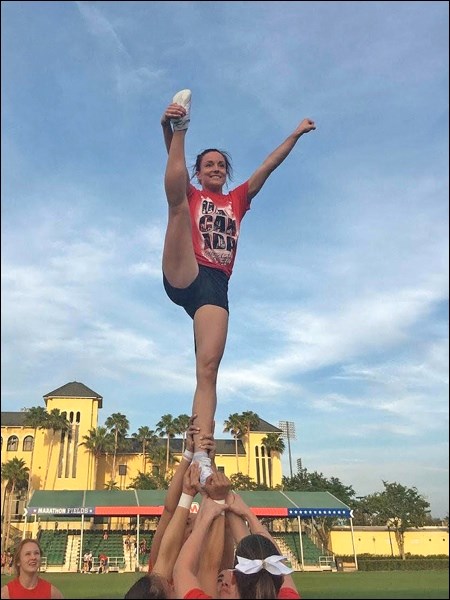After my initial interview with Caitlyn Nelson, Cheer Factory and Cheer Forge in Kitchener, Ont,, I knew we would continue our conversation because there were so many topics that could not be covered in 400 words.
As Caitlyn thought back to her years as an athlete, she recalled coaches who coached her as whole person, not just as a superb tumbler and flyer who could perform specific skills in the routine. When she felt valued for her personality, her work ethic, and her overall contribution to the team, that was a powerful motivator.
The “hard skills” of cheerleading would be the stunts, the tumbling, the jumps,etc. Without these hard skills there would be no sense of accomplishment when the routine hits. But, the interactive nature of cheerleading creates opportunities for all participants to exercise other “soft skills” like communication, resilience, perseverance, self-efficacy, courage, and self-esteem.
The hard skills make great photos, but the soft skills build character. Cheerleading develops soft skills because the stunt group interaction is the tangible symbol of communication and perseverance. The success of a pyramid is a perfect metaphor for courage and self-esteem.
Self-efficacy in sport is defined as an athlete’s belief in their capabilities in the sport which is a psychological mechanism to overcome fear and learn new skills. Caitlyn’s focus as a cheer coach is to lead athletes to self-efficacy. Skills are taught in a developmental sequence which reinforces the mental habit of “Yes I can.” Self-efficacy is slightly different from self-confidence. In sport psychology, self-confidence is defined as the absolute belief that you are able to perform. For many athletes, the absolute sureness to perform skills will probably NOT happen on the first day of the drills (or even weeks, or months). Self-efficacy is the belief in a long-term plan to acquire complex skills, the belief that “I will be able to do that.”
The coach teaches self-efficacy by labeling each of the baby step skills that were accomplished that day, and planning for next practice.
The annual cycle of cheerleading promotes long-term planning and long-term skill development. Teams typically form in late summer or fall, practice during fall-winter, and perfect the routine for the spring competition season. Self-efficacy fuels the year-long commitment to the team.



